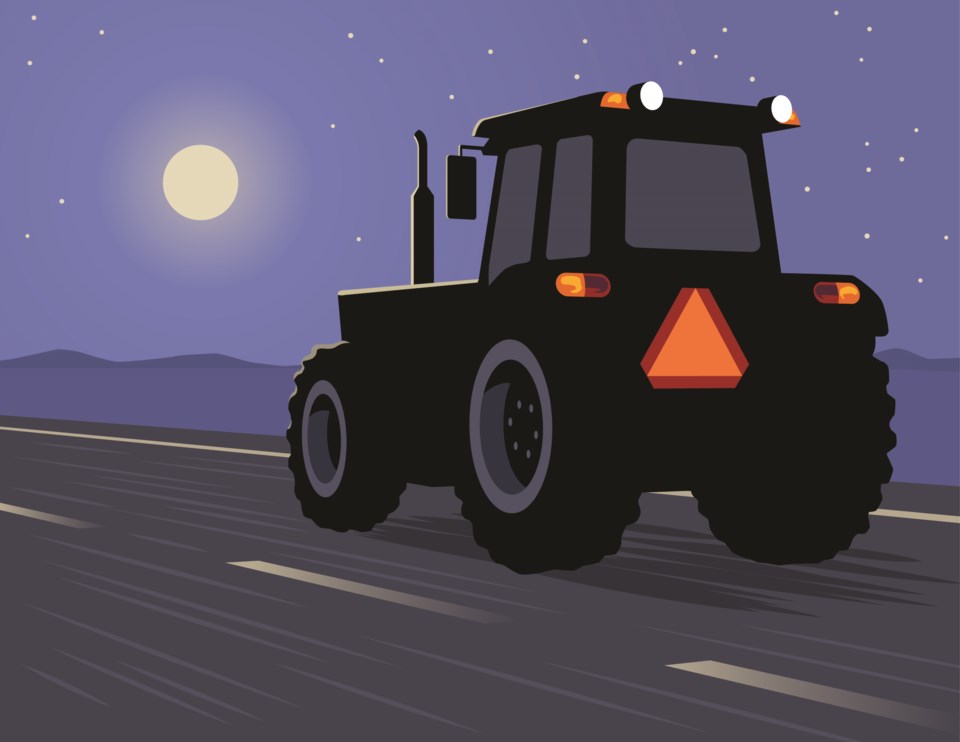LAKELAND – With the spring seeding season just a couple of months away, the Canadian Agricultural Safety Association (CASA) is reminding the farming community to keep safety in mind by planning accordingly.
“There is no question that farm accidents can have a devastating toll with physical, psychological, and financial consequences,” said Andrea Lear, CASA’s Chief Executive Officer, in a March 6 statement prior to the Canadian Agricultural Safety Week (CASW).
CASW is held every year during the third week of March. This year, CASW takes place from March 10 to 16.
“We also know that many on-farm incidents are preventable,” said Lear, explaining CASW serves as a reminder of the importance of farm safety.
Some of CASA’s tips include ways of keeping children safe on family farms. According to CASA, numerous hazards and risks come with farming life, and precautions are necessary to ensure safety for everyone, including children.
“Take the time to teach all children who live on or visit the farm age-appropriate tasks, establish boundaries, and provide supervision. Plus, be sure to lead by example by modelling safe practices and building traditions that involve safety,” reads information from CASA. “These steps will help keep kids safe on your farm and make safety part of your lasting legacy.”
Keith Kornelsen, agriculture fieldman for the County of St. Paul agrees.
“Often, there’s stories of kids getting hurt on a farm,” he acknowledges. “Just take note of your kids, and make sure that they’re safe. Don't be trying to get them to do things that you know are dangerous.”
Road Safety
Kornelsen also reminds the public to be careful when driving, especially in the Lakeland region - a rural community with many farmers. With spring coming up, this means farmers are gearing up for seeding and other spring jobs and many will be on the roads moving equipment.
Slow moving equipment will be seen on highways and roads, and Kornelsen asks the public to be careful.
“Pull over, let them pass,” and don’t do anything too hasty, he says, adding, “It may be good to remind farmers the same thing… just to be wary of the public because they will often try passing you or they’ll be frustrated that you’re moving so slow,” said Kornelsen.
Kornelsen asks both the public and the farming community to remain patient this spring and summer.
“It’s not worth an accident just to try to get somewhere a little quicker.”
Henry Thomson, deputy fire chief with the St. Paul Fire Department, echoed Kornelsen’s sentiments. “It can be frustrating when you are stuck behind one of these pieces of equipment, but please be courteous and share the road, and only pass when you are absolutely sure it is safe to do so," says Thomson.
He also reminds farmers to “ensure your ‘Slow Moving Vehicle’ signs are in place, clean, and visible on all equipment that will be operated on roadway.”
Moving Equipment
Farming equipment is also bigger now than it was years ago, says Kornelsen, reminding farmers to make sure their equipment does not come in contact with power lines, for example.
Also, when moving equipment from one place to another, Kornelsen encourages farmers to “try to knock as much soil off of their equipment as possible,” explaining soil can carry different weeds and diseases with it.
“Farmers are very aware of the dangers, but it’s nice just to get a heads up every once in a while.”
Mental Health
In terms of farm safety, there has been a lot of talk about mental health too, according to Kornelsen. “I do think there are a lot of stresses,” when farming, and farmers can often feel alone, but they do not have to face those stresses alone.
Kornelsen says there are resources available for farmers to help with mental health, such as the Rural Distress Line: 1-800-232-7288.
Other mental health resources for farmers and producers also include AgKnow, a campaign that provides two free counselling and therapy sessions.
The Do More Agriculture Foundation’s AgTalk provides a “safe and anonymous space” where individuals over the age of 16 can connect, share and receive support from a community of peers, according to the Do More Ag website.



